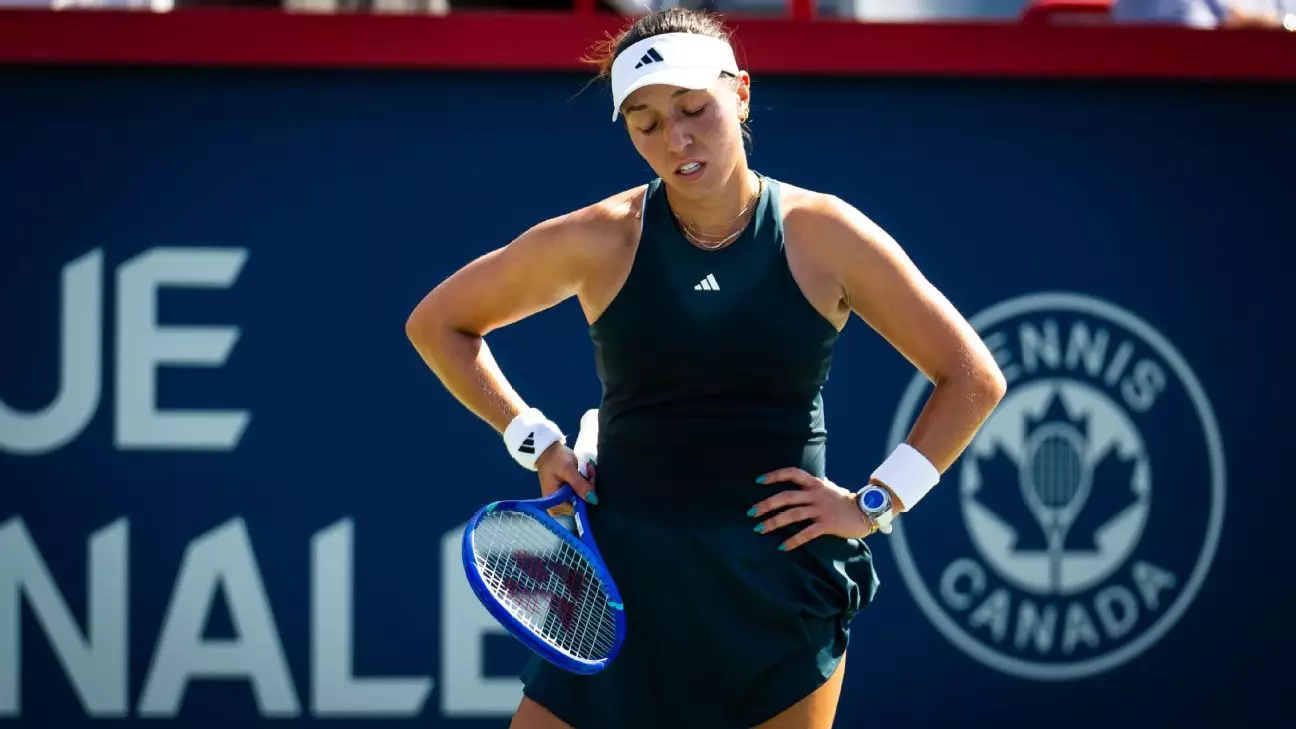Montreal’s latest tournament was anything but predictable, illustrating that in the world of tennis, longevity and resilience matter more than rankings or past glories. The early exit of two-time defending champion Jessica Pegula encapsulates the unpredictable nature of the sport; it underscores that even the most steady-handed competitors face turns that shake their confidence and challenge their supremacy. Pegula’s loss to the underdog Anastasija Sevastova, a veteran performer with a modest ranking of 386, is a bold reminder that tennis is a game of mental tenacity as well as technical skill. The tournament’s surprises serve as a wake-up call: no matter how deeply ingrained a player’s reputation, tennis rewards persistence and the ability to adapt.
Sevastova’s victory underscores that experience and grit often eclipse raw ranking power. At 35 and having navigated major setbacks, including a torn ACL, her comeback story is genuinely inspiring. It exemplifies that setbacks, whether physical or mental, are often catalysts for a renewed fighting spirit. Her ability to outsmart Pegula by breaking her six times highlights the importance of mental resilience and strategic adaptability. It is a stark reminder that in tennis, winning isn’t solely about raw athleticism; it’s equally about the will to persevere against tough odds. Sevastova’s feat challenges the conventional narrative that top-notch rankings guarantee victory, proving that seasoned fighters can still surprise us, regardless of their current standings.
The Power of Perseverance and the Evolution of Mental Toughness
Sevastova’s story is perhaps the most compelling element of this tournament. Her relatively sparse match record over four years, combined with her history of injury and maternity leave, paints a picture of a player who refuses to be defined by misfortune. Her statement about wanting ‘unfinished business’ reveals a mindset that transcends the superficial perception of athletic success. She embodies a broader message: resilience isn’t just about physical recovery; it’s about mental resolve and unwavering determination. Her victory acts as an affirmation that setbacks are merely setups for a comeback, especially when fueled by genuine passion.
This narrative starkly contrasts with Jessica Pegula’s inconsistent form, which she openly admits to. Pegula’s erratic performance reflects a wider issue among athletes: the difficulty of maintaining high-level consistency in a sport that demands constant mental agility. Her candidness about feeling “up and down” serves as a confession of vulnerability, reminding fans and critics that even top-ranked players are imperfect and human. Pegula’s early exit signals that success in tennis isn’t solely about executing perfect strokes but about mental stability and self-belief—attributes that often fluctuate and need continual nurturing.
Meanwhile, the rise of players like Iga Swiatek and Naomi Osaka reminds us that seasoned champions still dominate when they strike the right balance of power, focus, and tactical ingenuity. Swiatek’s emphatic victory over Eva Lys indicates her unyielding pursuit of excellence, despite recent challenges. Meanwhile, Osaka’s resilience in bouncing back from early setbacks shows that adaptability is key. She understood her opponent’s talent and adjusted her game accordingly, a lesson in humility and strategic execution. Both demonstrate that mental toughness often differentiates the good from the great in professional tennis.
The Shifting Landscape of Power Players and the New Generation
This tournament also highlights a fundamental shift: the emergence of new power players and the potential for long-standing veterans to reclaim their dominance. Amanda Anisimova’s commanding win over Raducanu exemplifies this transition. Her ability to bounce back after losing the first set reveals her growing maturity and mental fortitude. Her upcoming match with Svitolina is set to test her resilience further, marking her as a promising contender in the tennis hierarchy.
Furthermore, Madison Keys’ comeback after a poor first set underscores an evolving understanding in tennis—mental toughness can often be the decisive factor in tight matches. Her ability to reset after losing momentum reflects a strategic and emotional maturity that’s vital for success. It’s a testament to how modern tennis demands more than just technical prowess; it demands the capacity to quickly pivot, refocus, and maintain composure under pressure.
This shift in the tennis landscape suggests that unpredictability is becoming the norm. A player’s current ranking no longer guarantees dominance, and the sport is increasingly defined by those who can withstand psychological pressure, recover from adversity, and sustain high performance when it counts most. The Montreal tournament reveals a sport that is dynamically evolving, emphasizing mental resilience and strategic adaptability at the forefront of competitive excellence.


Leave a Reply